Question And Answer
Publications
Articles, publications, books, tools and multimedia features from the U.S. Institute of Peace provide the latest news, analysis, research findings, practitioner guides and reports, all related to the conflict zones and issues that are at the center of the Institute’s work to prevent and reduce violent conflict.
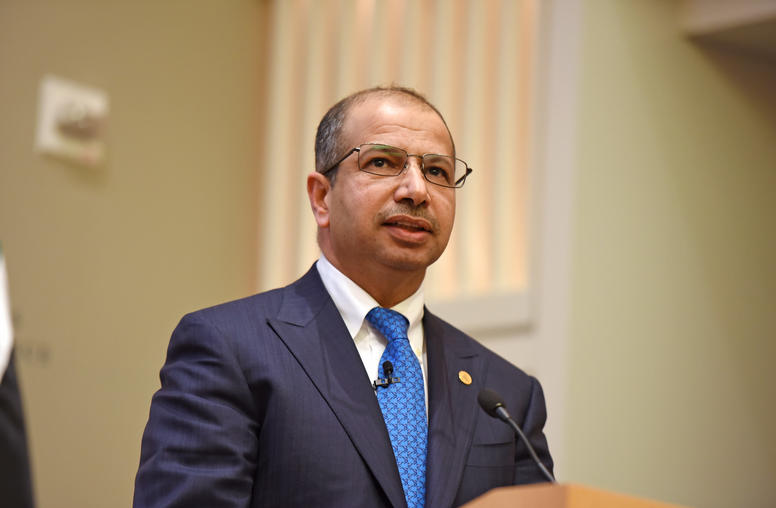
Iraq After ISIS: Sunni Leader Says It’s Time to Heal
With ISIS on the ropes in Iraq, now is the time to put in place political solutions that will reduce sectarian strife and prevent the resurgence of ISIS or similar groups, according to the speaker of Iraq’s parliament. “Military victory alone is not sufficient to confront terrorism,” said Saleem al-Jubouri, one of the highest-ranking...
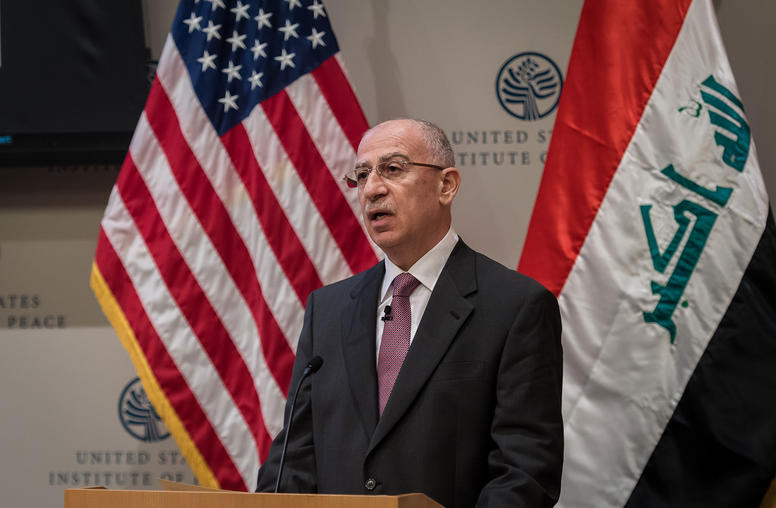
Iraqi Leader Urges a National Dialogue With U.S. Help
Iraqi Vice President Osama al-Nujaifi, a leader of the nation’s Sunni minority, called for a national dialogue that would effectively reboot Iraq’s post-ISIS political life by forging a binding consensus on religious rights, federalism, justice reform and distribution of national wealth.

Sarhang Hamasaeed Discusses Recent Events in Kirkuk
Sarhang Hamasaeed reviews a tense week in which the Iraqi Army and Kurdish forces clashed in the disputed area of Kirkuk. With ISIS driven out of Kirkuk, renewed tensions dating back to 2014 have re-emerged between the Iraqi Army and Popular Mobilization Forces Hamasaeed tells us why a political dialogue process is central to protecting minorities, and avoiding Shia and Sunni clashes.
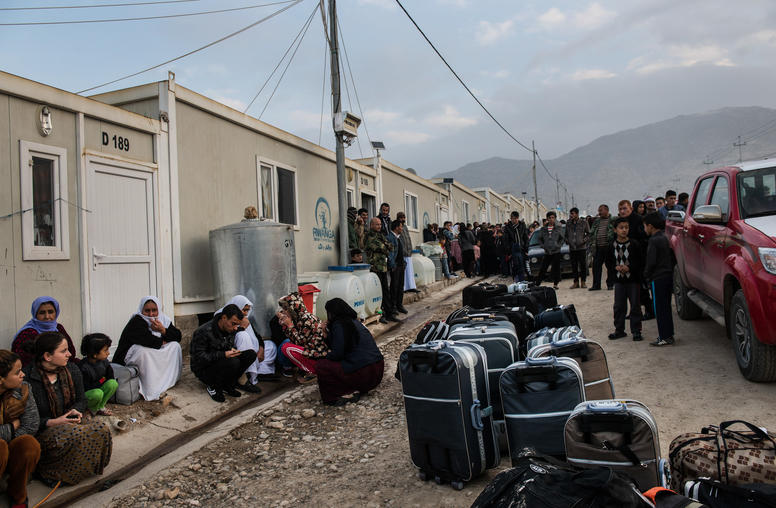
How Iraq’s Minorities Can Secure a Future After ISIS
As Iraqi and Kurdish forces recapture most territory from ISIS, the future of minorities in Iraq remains uncertain. To an even greater extent than Sunni and Shia areas destroyed by ISIS, minority communities face continuing security risks, humanitarian needs, a devastated economy and the imperative of reconciliation.
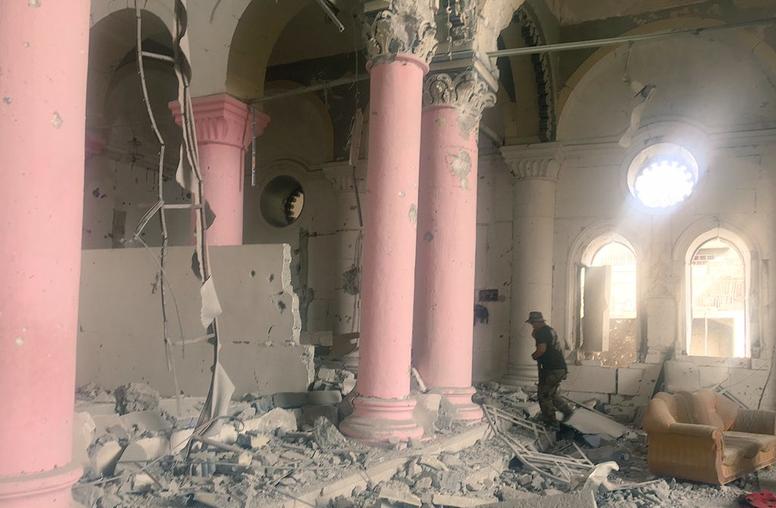
'U.S.-Light' in Iraq May Open Way for Russia, Iran
A failure by the international community to help rebuild Iraq will leave a vacuum that Russia, Iran or some new extremist group will seek to fill, warned the co-chairman of a working group in the Global Coalition to Defeat ISIS. In a recent discussion at the U.S. Institute of Peace, Ekkehard Brose agreed with the top U.S. State Department official on Iraq, Joseph Pennington, that Iraq must ultimately solve its own problems. But at this point, it can’t, Brose said.
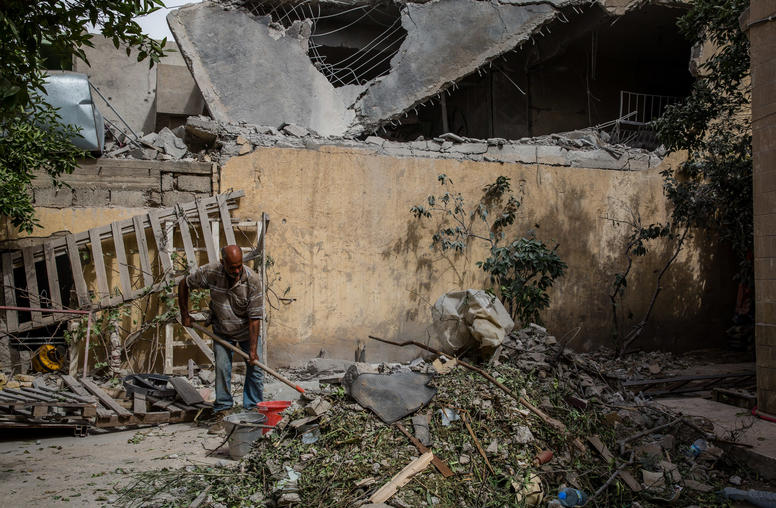
To Shut Iraq’s Door on ISIS, Use Local Peace Accords
As U.S.-backed Iraqi troops retake the last strongholds of the Islamic State in Iraq, the government in Baghdad and its international supporters must be ready to prevent a new round of conflicts in the country from turning violent, analysts said in a June 27 forum at the Heritage Foundation.
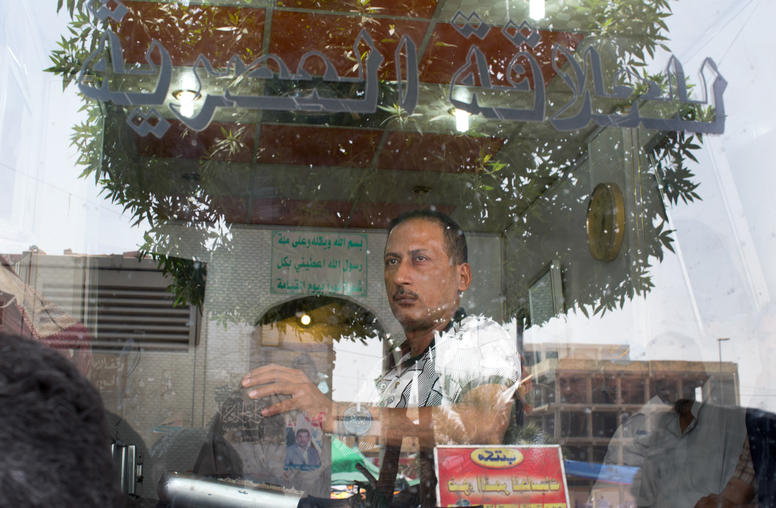
To Stabilize Iraq After ISIS, Try a Method That Worked
The farming region of Mahmoudiya, south of Baghdad, is divided by one of Iraq’s most turbulent fault lines of conflict, between the country’s Sunni and Shia tribes. A decade ago, this region of palm groves and irrigation canals was a violent al Qaeda stronghold known as the “Triangle of Death.” Yet for 2016, news reports and the United Nations’ accounting of nearly 7,000 or more civilian deaths across Iraq noted few attacks in this region, a reflection of its relative stability in recent years.
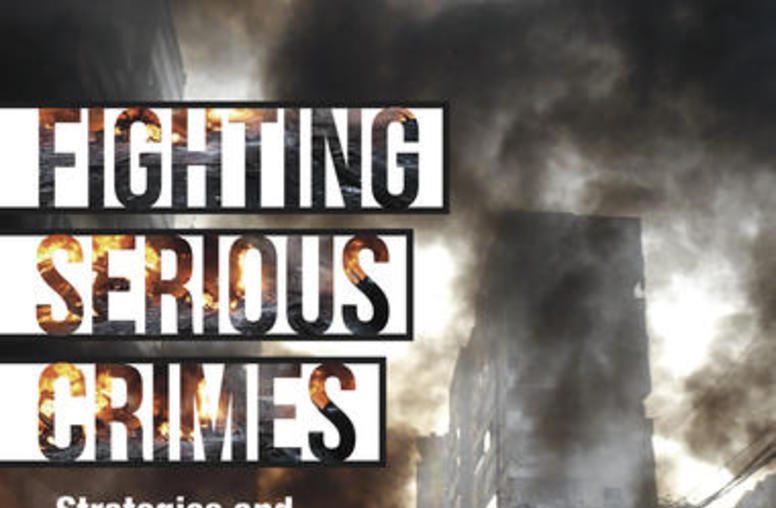
Fighting Serious Crimes
Fighting Serious Crimes: Strategies and Tactics for Conflict-Affected Societies is an invaluable resource for anyone battling serious crimes in societies seeking to avoid conflict, to escape from violence, or to recover and rebuild. Packed with practical guidance, this volume includes real world examples from more than twenty of today’s conflict zones, including Libya, Yemen, Iraq, Afghanistan, Somalia, and Colombia.
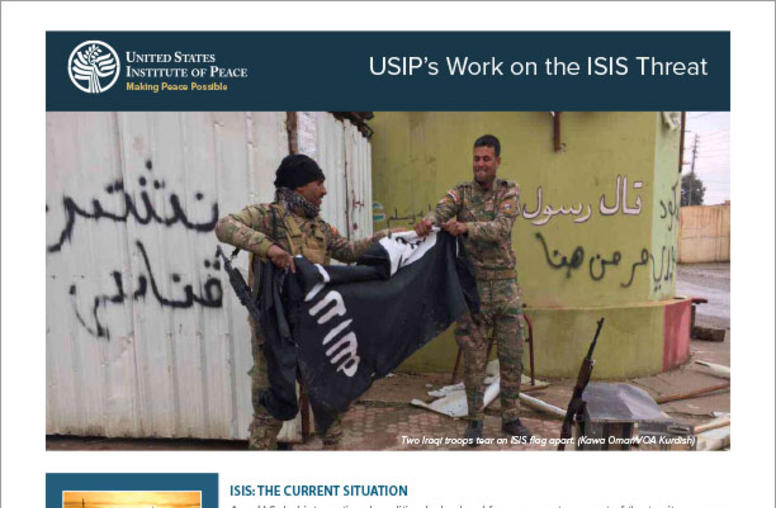
USIP’s Work on the ISIS Threat
The U.S. Institute of Peace has operated on the ground in Iraq since 2003 and in Afghanistan since 2002, as well as in Libya, Nigeria, Syria, Tunisia, and Yemen. As a small, agile institution, USIP works with local leaders and the U.S. government, including the military, to stabilize areas devastated by ISIS, end cycles of revenge, and address the root causes of radicalization, including corrupt and abusive governance.
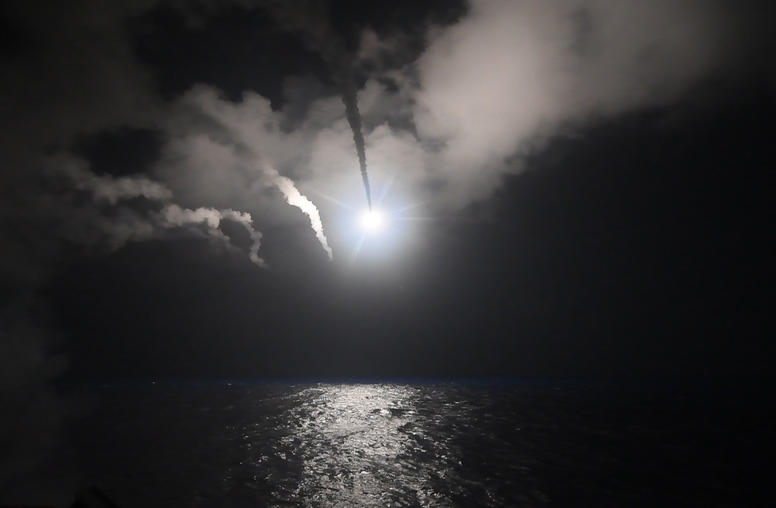
Q&A: Will U.S. Strikes on Syria Change Conflict’s Course?
The United States launched its first air strikes against forces backing Syrian President Bashar al-Assad since the country’s civil war began six years ago, in retaliation for a chemical-weapons attack that killed more than 80 civilian men, women and children. Elie Abouaoun, who is director of Middle East and North Africa programs at the U.S. Institute of Peace and is based in the region, examines the strategic implications, and USIP President Nancy Lindborg, who has worked for nearly 30 years on humanitarian crises and areas affected by conflict, comments on the factors that prompted the U.S. attack.